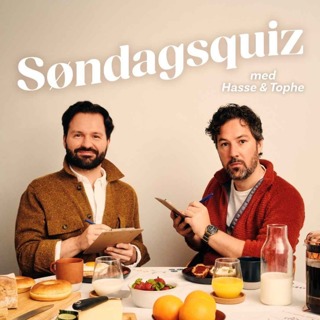
Bonus Episode 23 - The Year in ABA (2020) w/ Matt Cicoria
2020 is finally over! One of the few good things about this dumpster fire of a year is that we get to end it with our buddy Matt Cicoria from the Behavioral Observations podcast. We discuss the lows, the other lows, and force ourselves to think of a few highs. And enjoy some adult beverages because nothing says 2020 like a Zoom call with wine and beer.
23 Des 20201h 36min

Episode 150 - Social Skill Curricula
If social skills are an important component of human development and individuals with autism often have challenges in learning social skills, there must be a curriculum that lets specialists of all backgrounds teach these important lessons, right? Well, maybe? This week we look at what actual research there is behind commercially-available curricula for teaching social skills and highlight a few of the more promising programs. Articles discussed this episode: Bellini, S., Peters, J.K., Benner, L., & Hope, A. (2007). A meta-analysis of school-based social skills interventions for children with autism spectrum disorders. Remedial and Special Education, 28, 153-162. doi: 10.1177/07419325070280030401 Hall, L.J., Leinert, S., & Jacquez, J. (2018). A review of social skill manuals for adolescents with autism spectrum disorder. Current Developmental Disorders Reports, 5, 77-88. doi: 10.1007/s40474-018-0134-5 Stichter, J.P., O’Connor, K.V., Herzog, M.J., Lierheimer, K., & McGhee, S.D. (2012). Social competence intervention for elementary students with aspergers syndrom and high functioning autism. Journal of Autism and Developmental Disorders, 42, 354-366. doi: 10.1007/s10803-011-1249-2 Laugeson, E.A., Frankel, F., Gantman, A., Dillon, A.R., & Mogil, C. (2012). Evidence-based social skills training for adolescents with autism spectrum disorders: The UCLA PEERS program. Journal of Autism and Developmental Disorders, 42, 1025-1036. doi: 10.1007/s10803-011-1339-1 If you're interested in ordering CEs for listening to this episode, click here to go to the store page. You'll need to enter your name, BCBA #, and the two episode secret code words to complete the purchase. Email us at abainsidetrack@gmail.com for further assistance.
16 Des 20201h 22min

Episode 149 - Time Out w/ Dr. Jeanne Donaldson
Despite being a classic component of most parent discipline practices, the average person tends to forget that time out procedures started in the field of behavior analysis. Does this old chestnut still hold value as a part of a behavior management plan? Dr. Jeanne Donaldson joins us this week to review her research on the subject and how time out fits in the framework of trauma-informed care. Articles discussed this episode: Dadds, M.R. & Tully, L.A. (2019). What is it to discipline a child: What should it be? A reanalysis of time-out from the perspective of child mental health, attachment, and trauma. American Psychologist, 74, 794-808. doi: 10.1037/amp0000449 Donaldson, J.M. & Vollmer, T.R. (2011). An evaluation and comparison of time-out procedures with and without release contingencies. Journal of Applied Behavior Analysis, 44, 693-705. doi: 10.1901/jaba.2011.44-693 Donaldson, J.M., Vollmer, T.R., Yakich, T.M., & Van Camp, C. (2013). Effects of a reduced time-out interval on compliance with the time-out instruction. Journal of Applied Behavior Analysis, 46, 369-378. doi: 10.1002/jaba.40 If you're interested in ordering CEs for listening to this episode, click here to go to the store page. You'll need to enter your name, BCBA #, and the two episode secret code words to complete the purchase. Email us at abainsidetrack@gmail.com for further assistance.
9 Des 20201h 33min

December 2020 Preview
Ho ho ho! And a merry podcast! We’re back with a wintry mix of exciting topics featuring a guest we’ve been dying to have on the show, a guest we’ve been dying to have return, and a topic we’ve been dying to explore. Articles for December 2020 Time Out w/ Dr. Jeanne Donaldson Dadds, M.R. & Tully, L.A. (2019). What is it to discipline a child: What should it be? A reanalysis of time-out from the perspective of child mental health, attachment, and trauma. American Psychologist, 74, 794-808. doi: 10.1037/amp0000449 Donaldson, J.M. & Vollmer, T.R. (2011). An evaluation and comparison of time-out procedures with and without release contingencies. Journal of Applied Behavior Analysis, 44, 693-705. doi: 10.1901/jaba.2011.44-693 Donaldson, J.M., Vollmer, T.R., Yakich, T.M., & Van Camp, C. (2013). Effects of a reduced time-out interval on compliance with the time-out instruction. Journal of Applied Behavior Analysis, 46, 369-378. doi: 10.1002/jaba.40 Social Skills Curricula Bellini, S., Peters, J.K., Benner, L., & Hope, A. (2007). A meta-analysis of school-based social skills interventions for children with autism spectrum disorders. Remedial and Special Education, 28, 153-162. doi: 10.1177/07419325070280030401 Hall, L.J., Leinert, S., & Jacquez, J. (2018). A review of social skill manuals for adolescents with autism spectrum disorder. Current Developmental Disorders Reports, 5, 77-88. doi: 10.1007/s40474-018-0134-5 Stichter, J.P., O’Connor, K.V., Herzog, M.J., Lierheimer, K., & McGhee, S.D. (2012). Social competence intervention for elementary students with aspergers syndrom and high functioning autism. Journal of Autism and Developmental Disorders, 42, 354-366. doi: 10.1007/s10803-011-1249-2 Laugeson, E.A., Frankel, F., Gantman, A., Dillon, A.R., & Mogil, C. (2012). Evidence-based social skills training for adolescents with autism spectrum disorders: The UCLA PEERS program. Journal of Autism and Developmental Disorders, 42, 1025-1036. doi: 10.1007/s10803-011-1339-1 Fitness, Physical Activity, and Fake Resolutions w/ Dr. Nick Green Green, N. & Dallery, J. (2019). Evaluating the effectiveness of education, feedback, and task clarification to increase workplace physical activity. Journal of Organizational Behavior Management, 3-4, 237-246. doi: 10.1080/01608061.2019.1632239 Green, N. Sigurdsson, S., & Wilder, D.A. (2016). Decreasing bouts of prolonged sitting among office workers. Journal of Applied Behavior Analysis, 49, 717-722. doi: 10.1002/jaba.309 Kurti, A.N. & Dallery, J. (2013). Internet-based contingency management increases walking in sedentary adults. Journal of Applied Behavior Analysis, 46, 568-581. doi: 10.1002/jaba.58
2 Des 202020min

Episode 148 - Dental Exam Tolerance w/ Dr. Kelly McConnell
While nobody really wants to go to the dentist, there’s a big difference between a grumbling as you walk in for a cleaning and hiding under the dining room table when the word “fluoride” is uttered. This week, Dr. Kelly McConnell stops by to discuss her research on helping individuals with autism tolerate dental exams, including the do’s and do not’s of working with dentists and ensuring that the program in the clinic actually results in a successful trip to the dentist’s office. 4 out of 5 dentists recommend you listen to this episode (we’re guessing). Articles discussed this episode: Allen, K.D., & Wallace, D.P. (2013). Effectiveness of using noncontingent escape for general behavior management in a pediatric dental clinic. Journal of Applied Behavior Analysis, 46, 723-737. doi: 10.1002/jaba.82 Carter, L., Harper, J.M., & Luiselli, J.K. (2019). Dental desensitization for students with autism spectrum disorder through graduated exposure, reinforcement, and reinforcement fading. Journal of Developmental and Physical Disabilities, 31, 161-170. doi: 10.1007/s10882-018-9635-8 McConnell, K.L., Sassi, J.L., Carr, L., Szalwinski. J., Courtemanch, A., Njie-Jallow, F., & Cheney, W.R. (2020). Functional analysis and generalized treatment of disruptive behavior during dental exams. Journal of Applied Behavior Analysis. doi: 10.1002/jaba.747 Appukuttan, D.P. (2016). Strategies to manage patients with dental anxiety and dental phobia: Literature review. Clinical, Cosmetic and Investigational Dentistry, 8, 35-50. doi: 10.2147/CCIDE.S63626 If you're interested in ordering CEs for listening to this episode, click here to go to the store page. You'll need to enter your name, BCBA #, and the two episode secret code words to complete the purchase. Email us at abainsidetrack@gmail.com for further assistance.
25 Nov 20201h 22min

Meaningful Differences Book Club (PREVIEW)
For our first patrons-only book club, you voted on "Meaningful Differences" by Hart and Risley. And here it is: 2+ hours all about this classic, and sometimes controversial, book documenting Betty Hart and Todd Risley's longitudinal study exploring the home lives of 42 families to try to determine why some children develop more robust language than others. If you ever wondered where the 30 million word gap comes from, you've found it. Interested in listening to the definitive podcast about "Meaningful Differences" (IMHO) AND earning 2 learning credits? Head on over to our Patreon page and join up at the $10 or up level to get access to these episodes as well as monthly social meet-up opportunities and discounts in our regular CE store. Works discussed this episode: Hart, B., & Risley, T. R. (1995). Meaningful differences in the everyday experience of young American children. Baltimore, Md: Paul H. Brookes. Sperry, D.E., Sperry, L.L., & Miller, P.J. (2019). Reexamining the verbal environments of children from different socioeconomic backgrounds. Child Development, 90, 1303-1318. doi: 10.1111/cdev.13072 Golinkoff, R.M., Hoff, E., Rowe, M.L., Tamis-LeMonda, C.S., & Hirsh-Pasek, K. (2019). Language matters: Denying the existence of the 30-million word gap has serious consequences, Child Development, 90, 985-992. doi: 10.1111/cdev.13128 Gilkerson, J., Richards, J.A., Warren, S.F., Montgomery, J.K., Greenwood, C.R., Oller, D>K., Hansen, J.H.L., & Paul, T.D. (2017). Mapping the early language environment using all-day recordings and automated analysis. American Journal of Speech-Language Pathology, 26, 248-265. doi: 10.1044/2016_AJSLP-15-0169
23 Nov 202034min

Episode 147 - Sexual Wellbeing w/ Werner Leland and Barbara Gross
Diana was so amazed by a talk given by our special guests, Worner Leland and Barb Gross from Sex Ed Continuing Ed, that she emailed them immediately to join us on the show. We’re thankful that they agreed and spent an evening discussing the sexual wellbeing of individuals with developmental disabilities. We discuss the danger of seeing sexual behavior as problem behavior, review the ExPLISSIT model for addressing sexual wellbeing, and even get Rob to move beyond his classic New England Puritan viewpoints on “sex”. Interested in learning more? Check out these links shared by our guests: Sex Ed Continuing Ed Sexual Behavior Research and Practice SIG Kids Ask Our Whole Lives curriculum Sex Ed for Social Change Articles discussed this episode: Davis, T.N., Machalicke, W., Scalzo, R., Kobylecky, A., Campbell, V., Pinkelman, S., Chan, J.M., & Sigafoos, J. (2016). A review and treatment selection model for individuals with developmental disabilities who engage in inappropriate sexual behavior. Behavior Analysis in Practice, 9, 389-402. doi: 10.1007/s40617-015-0062-3 Stein, S. & Dillenburger, K. (2017). Ethics in sexual behavior assessment and support for people with intellectual disability. International Journal on Disability and Human Development, 16, 11-17. doi: 10.1515/ijdhd-2016-0023 Taylor, B. & Davis, S. (2007). The extended PLISSIT model for addressing the sexual wellbeing of individuals with an acquired disability of chronic illness. Sexuality and Disability, 25, 135-139. doi: 10.1007/s11195-007-9044-x If you're interested in ordering CEs for listening to this episode, click here to go to the store page. You'll need to enter your name, BCBA #, and the two episode secret code words to complete the purchase. Email us at abainsidetrack@gmail.com for further assistance.
18 Nov 20201h 17min

Episode 146 - Elopement w/ Dr. Megan Boyle
If you’ve ever tried to develop a function-based treatment on elopement, you’ve probably wondered where in the research to start. The answer is start here with this week’s episode! Not only are we joined by Dr. Megan Boyle to discuss the findings of her extensive literature review on the subject, but we also get to enjoy her first-hand accounts of assessment and treatment of elopement. The hipsters call it “bolting”. Articles discussed this episode: Boyle, M.A. & Adamson, R.M. (2017). Systematic review of functional analysis and treatment of elopement (2000-2015). Behavior Analysis in Practice, 10, 375-385. doi: 10.1007/s40617-017-0191-y Boyle, M.A., Keenan, G., Forck, K.L., & Curtis, K.S. (2019). Treatment of elopement without blocking with a child with autism. Behavior Modification, 43, 132-145. doi: 10.1177/0145445517740871 Boyle, M.A., Bacon, M.T., Brewer, E.M., Carton, S.M., & Gaskill, L.A. (2020). Evaluating a treatment wihtout extinction for elopement maintained by access to stereotypy. Journal of Applied Behavior Analysis, 53, 1531-1541. doi: 10.1002/jaba.682 If you're interested in ordering CEs for listening to this episode, click here to go to the store page. You'll need to enter your name, BCBA #, and the two episode secret code words to complete the purchase. Email us at abainsidetrack@gmail.com for further assistance.
11 Nov 20201h 18min






















